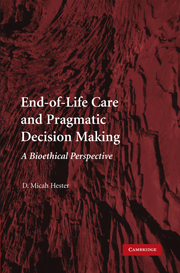1 - Crito Revisited
Published online by Cambridge University Press: 05 June 2012
Summary
Socrates:…[K]eep this one truth in mind, that a good man cannot be harmed either in life or death, and that his affairs are not neglected by the gods.…
Plato's ApologyCrito:…Socrates, I do not think that what you are doing is just, to give up your life when you can save it, and to hasten your fate…
Socrates:…We must…examine whether we should act in this way or not, as not only now but at all times I am the kind of man who listens only to the argument that on reflection seems best to me. I cannot, now that this fate has come upon me, discard the arguments I used; they seem to me much the same. I value and respect the same principles as before…
Plato's CritoIn the ancient Greek dialogue, Crito, Plato provides a portrait of his mentor, Socrates, only days before his death, and while the death scene itself is left to another dialogue, it is in Crito that Socrates explains why he would rather die in prison than live in exile (Plato 1997). The conversation is instructive on many levels, and one aspect that merits greater attention is the extent to which Socrates's cultivated character relates to the decision at hand. In particular, the dialogue raises issues concerning decisions at the end of life, decisions faced (in admittedly much different ways) by a multitude of patients, patient families, friends, and healthcare providers.
- Type
- Chapter
- Information
- End-of-Life Care and Pragmatic Decision MakingA Bioethical Perspective, pp. 1 - 12Publisher: Cambridge University PressPrint publication year: 2009



